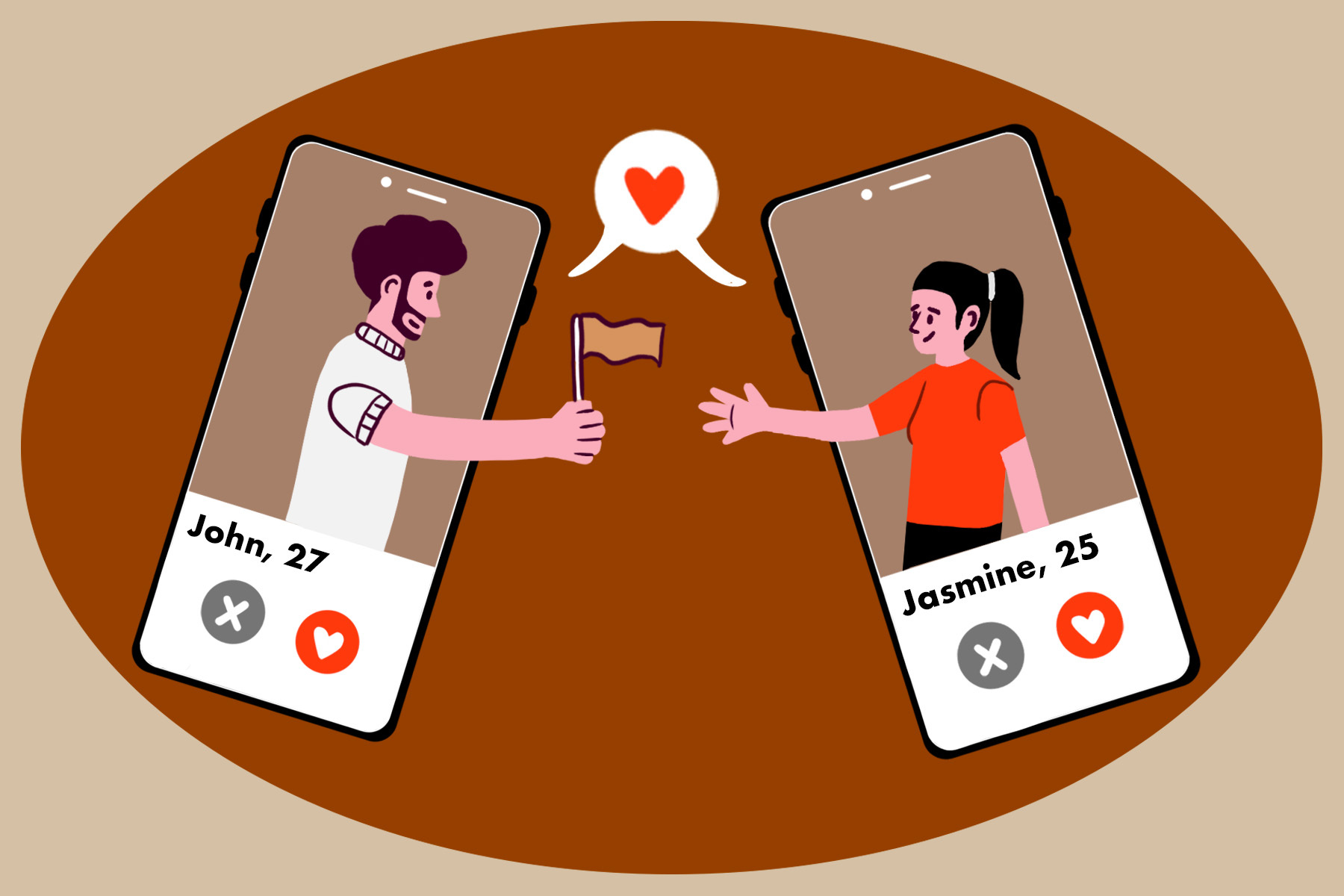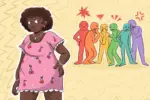You’ve heard of red flags and green flags to look out for when entering the dating scene. Well, now we’ve got beige flags.
When it comes to dating, people sometimes get caught up in attraction and get distracted by those who look shiny and cool, making it more difficult to recognize the negative aspects of their personalities. In extreme cases, this could mean that they fail to notice when a person has abusive tendencies. In response, the internet collectively created a general list of characteristics to look out for in another person when dating or entering a new relationship.
These are known as red flags. They typically consist of traits like jealous behavior, low self-esteem, being untrusting or quick to anger, and engaging in substance abuse and love-bombing. Having a list like this in your mind can be beneficial when you’re not sure what to look out for, especially since some toxic traits have long been dismissed as normal or sometimes even expected for certain genders.
Alternatively, there are green flags that people can also look out for, or signs that indicate someone may be a good partner. These can include having good listening skills, self-awareness, vulnerability, emotional stability and the ability to be accommodating to their partner. For people who are new to dating or who have endured cycles of abuse in their relationships, it can be hard to recognize when someone is a keeper, so keeping traits like these in mind can be helpful.
However, there’s recently been a new iteration of the generally helpful flags, described by TikTok user Caitlin MacPhail as beige flags. Beige flags are signs that the person you’re talking to on a dating app may be boring. The all-encompassing idea of a beige flag is that someone hasn’t put much effort into their dating profile, which can apparently be a sign that a conversation with them may be dull.
In her TikTok, MacPhail identifies food opinions, references to mainstream sitcoms, “using puppies as your personality” and expressing the desire for someone who understands their banter as beige flags on dating apps. McPhail told Mashable, “If someone has a lot of beige flags on their profile, you’ll probably get to the end of it without having really learnt anything about them.” She went on to say that “whether chocolate belongs in the fridge or the cupboard, them saying that they’ll probably love their dog more than you, or lots of gym selfies and references to the gym are typical beige flags.”
The thing is, MacPhail is right about some of these — they’re more than just “beige flags,” though. Telling people who view your profile that you’ll probably never love a potential partner as much as you love your dog is just plain rude. It sends the message that your partner will never be your main priority and that they’ll be beneath an animal in the relationship pecking order, even if it is meant to be taken lightheartedly. Additionally, expressing the need for a partner who can handle your banter can sometimes just be another way of saying “if you can’t handle offensive jokes, we’re not going to work out”; it may not always mean that, but considering the pushback on political correctness from many people in recent years, it’s fair to assume that it’s what some of them might mean.
Still, even if McPhail may be correct about some of these traits, the rest of them can be quite innocent. While they can be considered boring depending on the person, filing them under a term like “beige flags” can be damaging. Blanket generalizations like these can foster a dismissive attitude toward others if they just happen to possess “boring” but harmless personality traits. It can create a mob mentality around demonizing all forms of conventionality. Identifying innocuous habits or interests with a simplified term like “beige flags” can also trivialize important umbrella terms like “red flags” and “green flags.”
While being aware of common red flags and green flags is often helpful, constantly looking out for beige flags can make the associated traits seem like something inherently negative to be avoided at all costs rather than something that is ultimately harmless. Why does it matter if someone’s intense love for “The Office” is a big part of their personality if they are otherwise kind and a good listener? Should someone’s eagerness to make their future partner happy and comfortable really be overshadowed by the mildly annoying fact that they have strong opinions about pineapple on pizza?
The fact is that every single person has aspects of their personality that others may consider boring. Someone’s pseudo-intellectualism may be tired and boring to a person who enjoys a simpler perspective on life. Similarly, a person’s interest in mainstream TV and goofy comedy movies may be boring to the noir film buff. Either way, these are harmless traits, as long as they don’t cause a person to feign intellectual superiority. Boringness is subjective and beige flags attempt to make it objective, which ostracizes people who possess certain traits or interests and make it harder for them to find a partner.
Beige flags can also harm the person who obsesses over them, as they may begin to care more about the shallow details about the person they’re talking to rather than whether or not said person is decent and good. Not only are they robbing themselves of potential happiness, but in more extreme cases, it could cause them to find themselves in a destructive situation with someone who had red flags from the start and was given a chance just because their dating profile was a lot more interesting than the person with a corny joke in their description.
Beige flags speak to the larger issue of the shallowness of dating apps. It is well established that anyone can create whatever persona they please on social media, and apps like Tinder and Hinge are not exempt from this reality. People will often resort to dating apps because they’re tired of going through the motions of casual dating and want to jump into the deeper stuff when looking for a long-term relationship.
However, expecting someone to put an unreasonable amount of effort into their dating profiles is counterproductive. It reveals the sometimes shallow nature of dating that many people try to avoid. Putting effort into making a dating profile look cool and interesting does not make someone more worthy of a romantic connection than a person with a more run-of-the-mill profile. Besides, if someone has to put so much effort into seeming unique, the reality of their uniqueness may be a bit questionable.
Being overly judgmental toward people with ordinary dating profiles is just a way of sabotaging your own happiness. Most people are more complex than they seem, even the ones with boring dating profiles. Not only does the person with the boring profile deserve a chance to be seen and loved, but so does the person judging it.
It’s true that people sometimes just don’t click. While you don’t need to give every person with a cliché profile a chance, there’s no good reason to automatically write them off. Pay more attention to what their description says about how they’ll treat you rather than how cool it makes them seem. You deserve a chance at loving and being loved by a genuinely good person, not just a person with hot pictures and a catchy one-liner in their description.

















